German Shepherd Life Expectancy
German Shepherds are among the world’s most beloved dog breeds, known for their intelligence, loyalty, and versatility as both family companions and working dogs. One of the most important questions potential owners ask is about German Shepherd life expectancy and what factors influence how long these magnificent dogs live. Understanding the typical lifespan of German Shepherds and the elements that can affect their longevity is crucial for providing the best possible care throughout their lives.
The average German Shepherd life expectancy ranges from 9 to 13 years, with most dogs living around 10-11 years. However, many factors can influence this lifespan, including genetics, diet, exercise, healthcare, and overall quality of life. By understanding these factors and implementing proper care strategies, owners can help their German Shepherds live longer, healthier, and more fulfilling lives.
German Shepherd Life Expectancy: The Numbers
The German Shepherd life expectancy is considered average for large breed dogs, though it’s somewhat shorter than many smaller breeds. Several studies and breed surveys have consistently shown that German Shepherds typically live between 9 and 13 years, with the average being approximately 10-11 years.
Factors Affecting Lifespan: The variation in German Shepherd life expectancy can be attributed to several key factors including genetic health, breeding quality, lifestyle, nutrition, veterinary care, and environmental conditions. Dogs from health-tested lines with responsible breeding practices often live longer than those from puppy mills or backyard breeders.
Gender Differences: Some studies suggest that female German Shepherds may have a slightly longer average lifespan than males, though the difference is typically small. Spayed and neutered dogs also tend to live longer than intact dogs due to reduced risks of certain cancers and reproductive issues.
Size Considerations: Within the breed, smaller German Shepherds often live longer than their larger counterparts, following the general trend that smaller dogs tend to have longer lifespans than larger dogs.

Appearance: The Classic German Shepherd
German Shepherds are large, athletic dogs with a distinctive appearance that has remained relatively consistent throughout the breed’s history.
Size and Build: Adult German Shepherds typically weigh between 50-90 pounds, with males being larger than females. Males usually stand 24-26 inches tall at the shoulder, while females stand 22-24 inches tall. They have a well-balanced, rectangular build that emphasizes both strength and agility.
Coat Characteristics: German Shepherds have double coats consisting of a dense undercoat and longer outer guard hairs. The coat can be medium or long length, with the medium-length coat being more common in show lines. Common colors include black and tan, sable, solid black, and occasionally white or blue variations.
Distinctive Features: The breed is known for its erect, pointed ears, intelligent dark eyes, and noble expression. They have a slightly elongated muzzle, strong jaw, and a bushy tail that typically hangs down with a slight curve.
Movement: German Shepherds are known for their efficient, ground-covering gait. Healthy dogs move with fluid, powerful strides that demonstrate their working heritage and athletic ability.

Personality and Temperament
The German Shepherd’s personality and temperament are key factors that have made them one of the world’s most popular breeds for both family life and professional work.
Intelligence: German Shepherds rank among the most intelligent dog breeds, typically placing third in intelligence rankings. They excel at problem-solving, learning complex commands, and adapting to new situations quickly.
Loyalty and Devotion: These dogs are renowned for their unwavering loyalty to their families. They often form particularly strong bonds with one primary person while remaining devoted to all family members.
Confidence and Courage: Well-bred German Shepherds display natural confidence and courage, making them excellent protection dogs and working companions. They face challenges head-on and rarely back down from situations requiring bravery.
Versatility: German Shepherds adapt well to various roles, from family pet to police work, military service, search and rescue, therapy work, and competitive dog sports.
Work Drive: Most German Shepherds have strong work drives and thrive when given jobs to do. They need mental stimulation and purpose to remain happy and well-behaved.
Alertness: These dogs are naturally alert and aware of their surroundings, making them excellent watchdogs who will alert their families to potential threats or unusual activities.
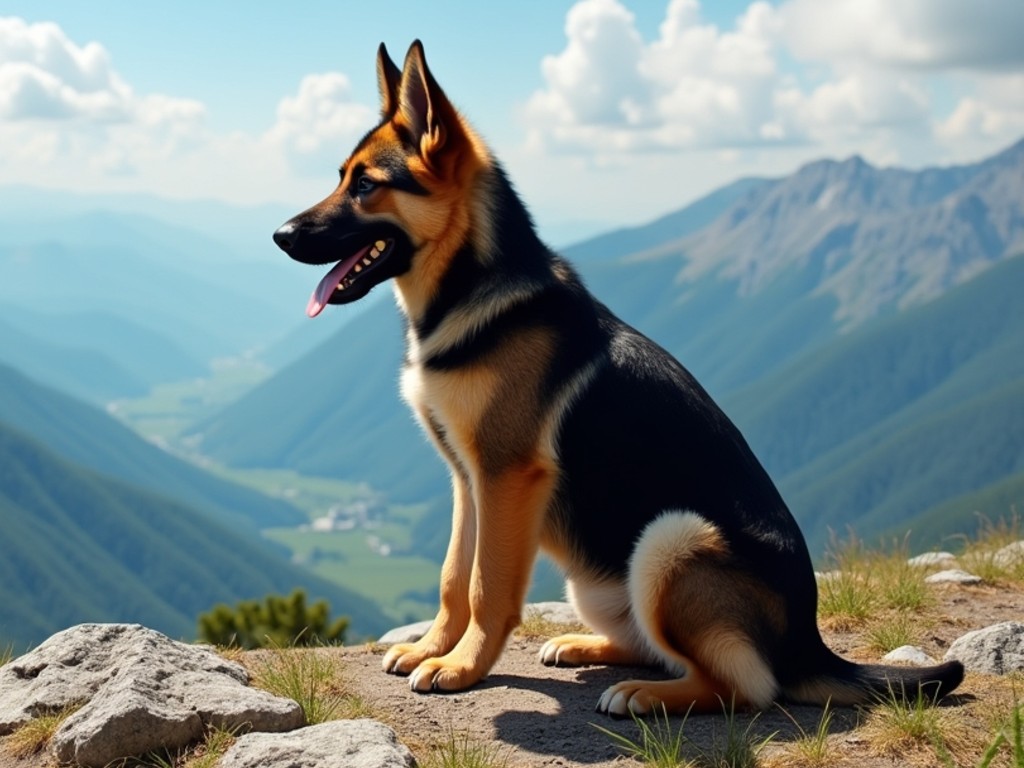
Factors That Influence German Shepherd Life Expectancy
Understanding the factors that can impact German Shepherd life expectancy helps owners make informed decisions about care and lifestyle choices.
Genetics and Breeding: Perhaps the most significant factor affecting lifespan is the genetic health of the dog’s lineage. Dogs from health-tested parents with no history of genetic diseases typically live longer than those from unhealthy lines.
Diet and Nutrition: Proper nutrition throughout life significantly impacts longevity. High-quality diets appropriate for each life stage, maintaining proper weight, and avoiding obesity all contribute to longer lifespans.
Exercise and Activity: Regular, appropriate exercise helps maintain muscle tone, joint health, cardiovascular fitness, and mental well-being, all of which contribute to longevity.
Veterinary Care: Regular checkups, preventive care, early disease detection, and prompt treatment of health issues can significantly extend a dog’s life.
Environmental Factors: A safe, stress-free environment with minimal exposure to toxins, extreme weather, or dangerous situations supports longer life expectancy.
Mental Stimulation: Keeping the mind active and engaged throughout life may help prevent cognitive decline and contribute to overall well-being in senior years.

Common Health Issues Affecting Life Expectancy
Several health conditions can impact German Shepherd life expectancy, making awareness and prevention crucial for owners.
Hip and Elbow Dysplasia: These joint conditions are common in German Shepherds and can significantly impact quality of life if severe. Early detection and management can help dogs live comfortably longer.
Degenerative Myelopathy: This progressive spinal cord disease affects many German Shepherds in their later years. While not immediately life-threatening, it can severely impact quality of life.
Bloat (Gastric Dilatation-Volvulus): This life-threatening emergency can be fatal if not treated immediately. Prevention strategies and awareness of symptoms are crucial.
Heart Disease: Various cardiac conditions can affect German Shepherds, including dilated cardiomyopathy and congenital heart defects.
Cancer: Like many large breeds, German Shepherds can be prone to various cancers, including hemangiosarcoma and osteosarcoma.
Epilepsy: Seizure disorders can affect quality of life, though many dogs with epilepsy can live normal lifespans with proper management.
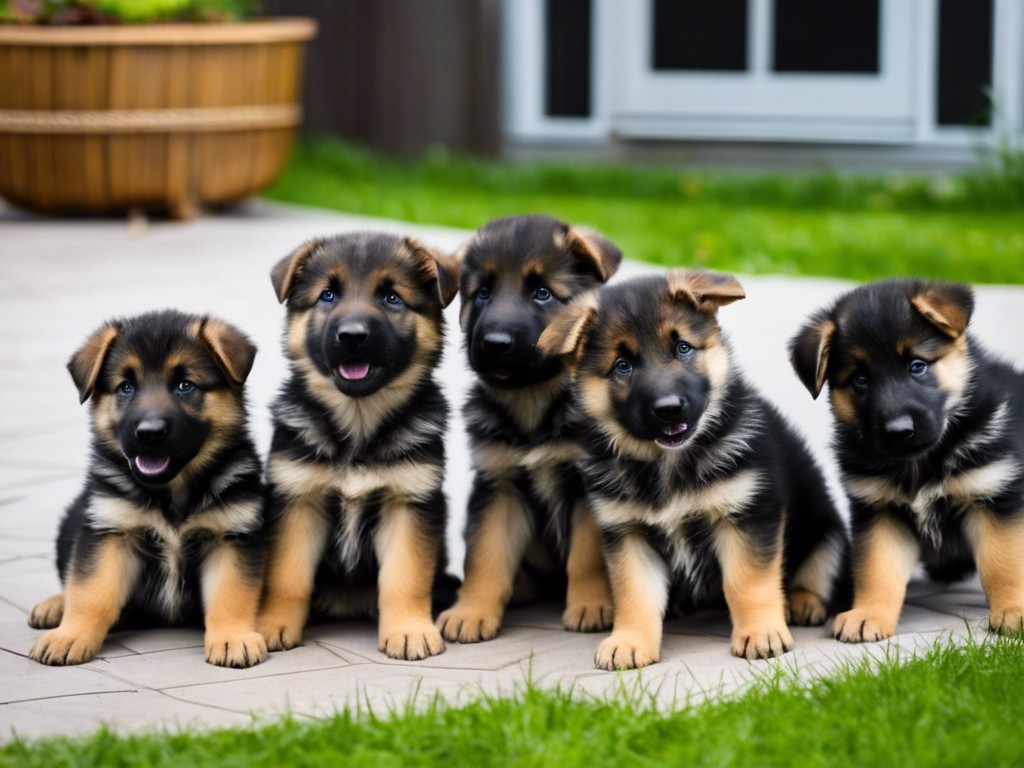
Grooming Requirements
Proper grooming contributes to overall health and can help detect health issues early, potentially impacting life expectancy.
Daily Brushing: German Shepherds require daily brushing to manage their heavy shedding and prevent matting. Regular brushing also allows owners to check for skin issues, lumps, or parasites.
Seasonal Coat Care: These dogs “blow” their coats twice yearly, requiring extra grooming attention during these periods to manage the heavy shedding.
Bathing: Bathe German Shepherds every 6-8 weeks or as needed. Over-bathing can strip natural oils and cause skin problems.
Nail Maintenance: Keep nails trimmed every 2-3 weeks to prevent overgrowth, splitting, and discomfort that could affect mobility.
Ear Care: Clean ears weekly to prevent infections that could impact hearing and overall comfort.
Dental Hygiene: Regular teeth brushing and dental care help prevent periodontal disease, which can affect overall health and longevity.
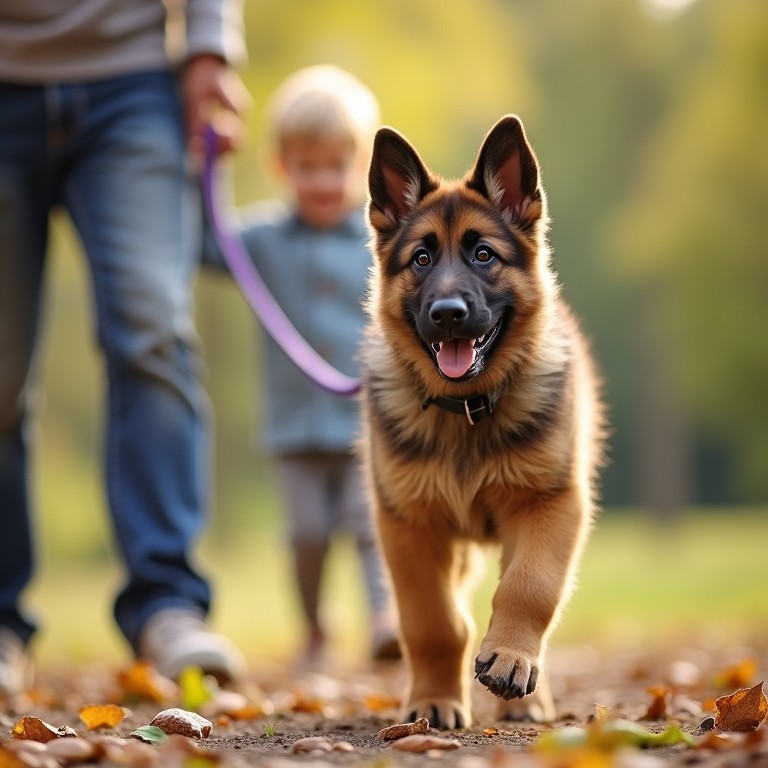
Care Throughout the Lifespan
Providing appropriate care throughout each life stage helps maximize German Shepherd life expectancy.
Puppyhood (0-18 months): Focus on proper nutrition for growth, early socialization, basic training, and establishing healthy routines. Avoid over-exercising growing joints.
Young Adult (18 months – 3 years): Continue training, provide adequate exercise and mental stimulation, maintain preventive veterinary care, and monitor for any developing health issues.
Adult (3-7 years): Maintain regular exercise routines, monitor weight, continue preventive care, and watch for early signs of common breed health issues.
Senior (7+ years): Increase veterinary monitoring, adjust exercise as needed, consider senior diet formulations, and focus on comfort and quality of life management.
Geriatric (10+ years): Provide supportive care for aging issues, manage any chronic conditions, ensure comfort, and make quality of life the primary focus.

Nutrition and Feeding
Proper nutrition throughout life is one of the most important factors in maximizing German Shepherd life expectancy.
Life Stage Nutrition: Feed appropriate formulations for each life stage – puppy food for growth, adult maintenance for mature dogs, and senior formulas for older dogs.
Quality Ingredients: Choose high-quality foods with named protein sources, appropriate fat levels, and minimal fillers or artificial additives.
Weight Management: Maintain proper body weight throughout life. Obesity significantly shortens lifespan and increases disease risk.
Portion Control: Feed measured portions twice daily rather than free-feeding to maintain healthy weight and prevent bloat.
Special Dietary Needs: Address any food allergies, sensitivities, or health conditions with appropriate dietary modifications.
Supplements: Consider joint supplements, omega fatty acids, or other veterinarian-recommended supplements to support long-term health.

Exercise Throughout the Lifespan
Appropriate exercise is crucial for maintaining health and maximizing German Shepherd life expectancy.
Puppy Exercise: Provide age-appropriate exercise that doesn’t stress developing joints. Short, frequent play sessions are ideal for young puppies.
Adult Exercise Needs: Adult German Shepherds need 2-3 hours of exercise daily, including walks, runs, play time, and mental stimulation activities.
Senior Exercise Adjustments: Modify exercise routines as dogs age, focusing on gentler activities that maintain mobility without causing stress or pain.
Mental Exercise: Provide mental stimulation throughout life through training, puzzle toys, and problem-solving activities to maintain cognitive function.
Consistency: Maintain regular exercise routines to support cardiovascular health, muscle tone, and mental well-being.
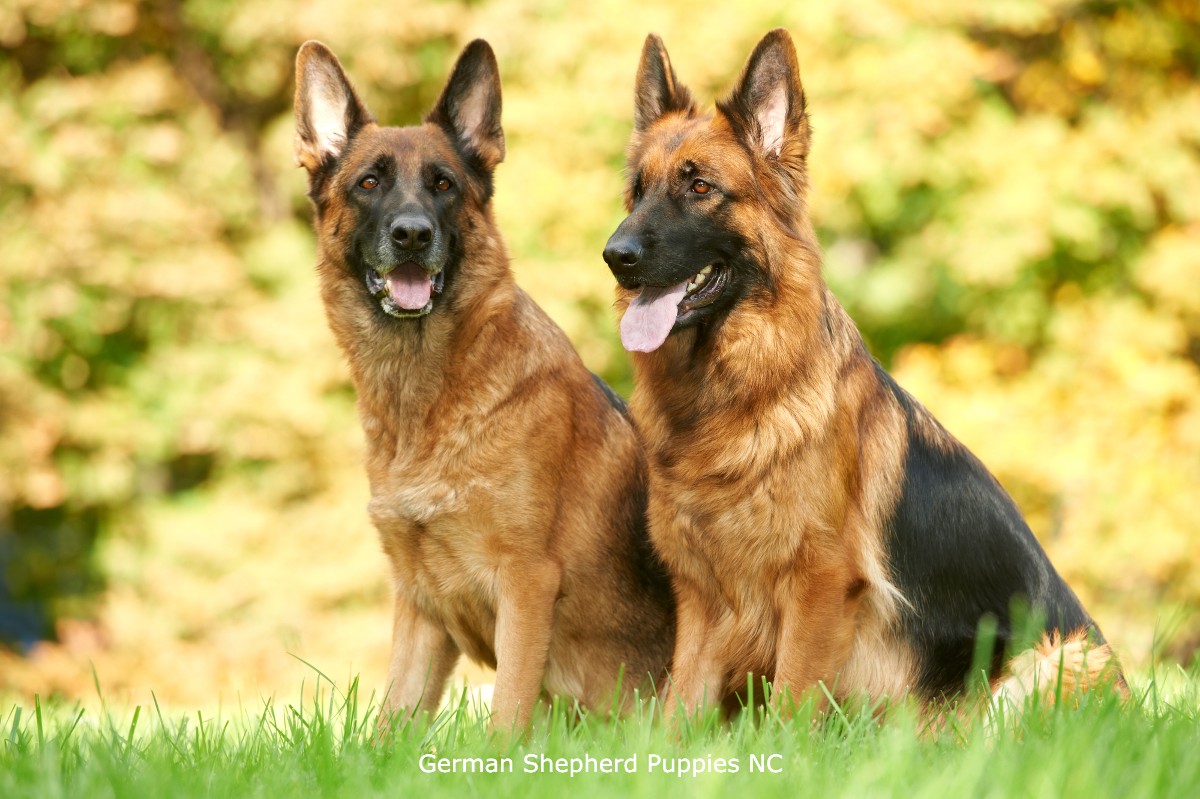
Maximizing German Shepherd Life Expectancy
Several strategies can help owners maximize their German Shepherd’s life expectancy and quality of life.
Choose Healthy Breeding: Start with a puppy from health-tested parents and reputable breeders who prioritize longevity and health over appearance alone.
Preventive Veterinary Care: Maintain regular checkups, vaccinations, parasite prevention, and early health screening to catch problems before they become serious.
Maintain Healthy Weight: Keep your dog at an optimal weight throughout life to reduce stress on joints and organs.
Provide Mental Stimulation: Keep the mind active and engaged throughout life to maintain cognitive function and prevent boredom-related problems.
Create a Safe Environment: Minimize exposure to toxins, dangerous situations, and excessive stress that could impact health and longevity.
Monitor for Changes: Stay alert to changes in behavior, appetite, energy levels, or physical condition that might indicate developing health issues.
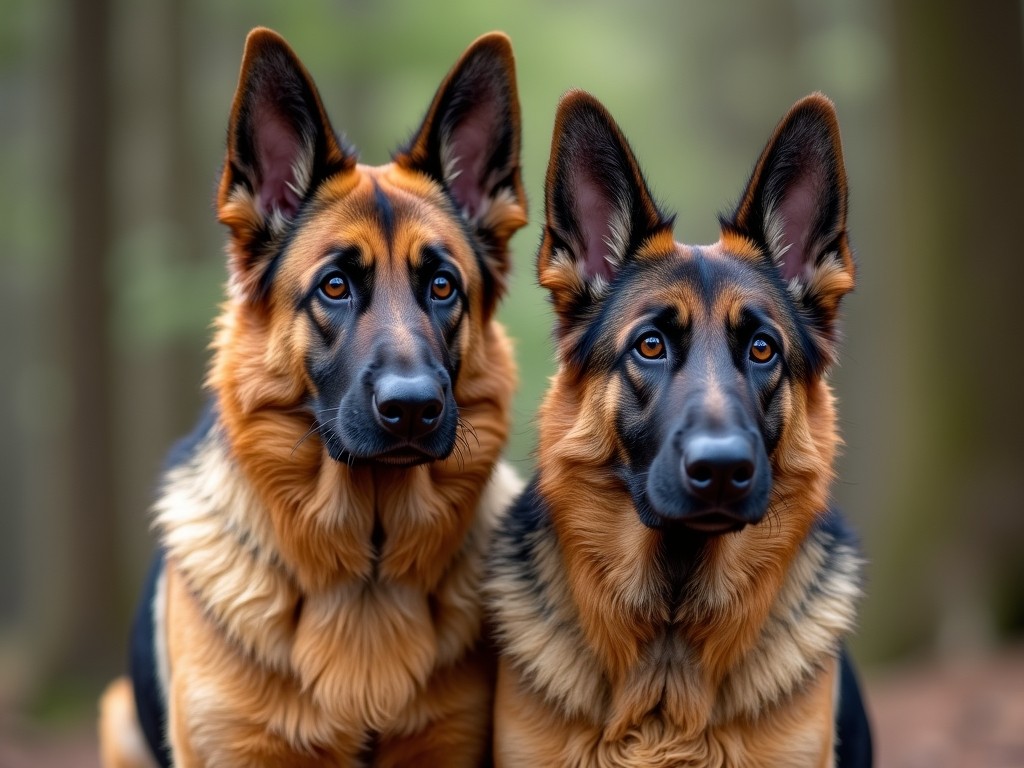
Training for Longevity
Proper training throughout life contributes to safety and can impact German Shepherd life expectancy.
Basic Obedience: Strong recall, leash manners, and basic commands help keep dogs safe in various situations throughout their lives.
Socialization: Well-socialized dogs experience less stress and are safer in various situations, contributing to longer, happier lives.
Impulse Control: Teaching self-control helps prevent dangerous behaviors and reduces stress-related health issues.
Cooperative Care: Train dogs to accept handling, grooming, and veterinary procedures calmly to ensure they receive necessary care throughout life.
Mental Enrichment: Use training as mental exercise to keep minds sharp and engaged throughout the aging process.
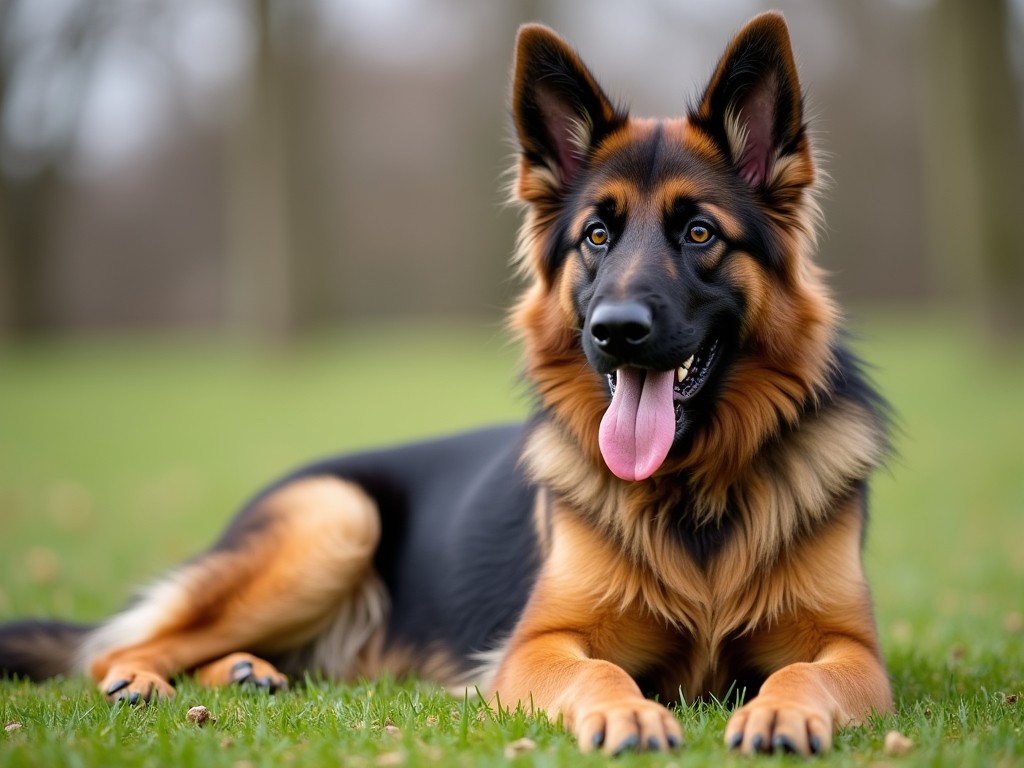
Pros of German Shepherd Ownership
Exceptional Loyalty: German Shepherds form incredibly strong bonds with their families and remain devoted throughout their lives.
High Intelligence: Their intelligence makes them highly trainable and adaptable to various family situations and activities.
Versatility: These dogs excel in multiple roles from family companion to working dog, therapy dog, or sport competitor.
Natural Protection: They provide excellent security and protection for families while being gentle with family members.
Active Lifestyle Companions: Perfect for families who enjoy outdoor activities, hiking, running, and active lifestyles.
Trainability: Their eagerness to please and intelligence make them excellent candidates for various types of training.
Strong Work Ethic: They thrive on having jobs to do and purpose in their lives, making them engaged family members.
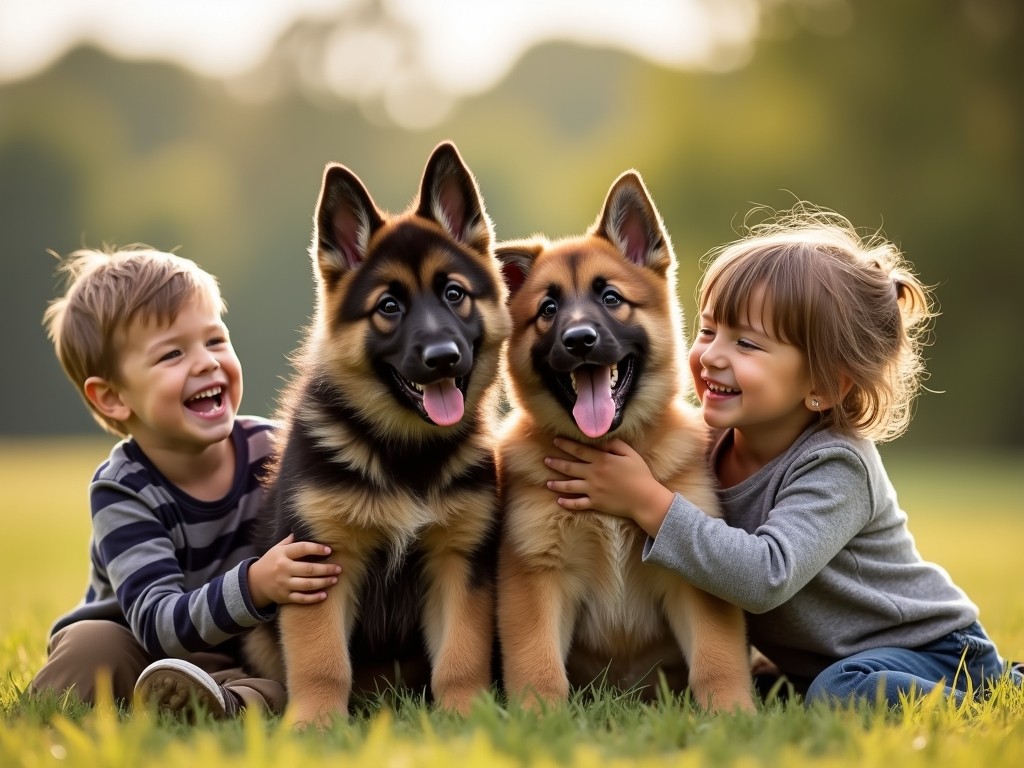
Cons of German Shepherd Ownership
Shorter Lifespan: The 9-13 year life expectancy means saying goodbye sooner than with many smaller breeds.
Health Concerns: Prone to several genetic health issues that can be expensive to manage and may impact quality of life.
High Exercise Needs: Require significant daily exercise and mental stimulation that may not suit all lifestyles.
Heavy Shedding: Year-round shedding with seasonal “coat blows” requires significant grooming commitment.
Size and Strength: Large, powerful dogs require experienced handling and proper training for safety.
Potential Behavioral Issues: Can develop destructive behaviors if not properly exercised and mentally stimulated.
Higher Costs: Large dogs have higher costs for food, veterinary care, medications, and supplies.
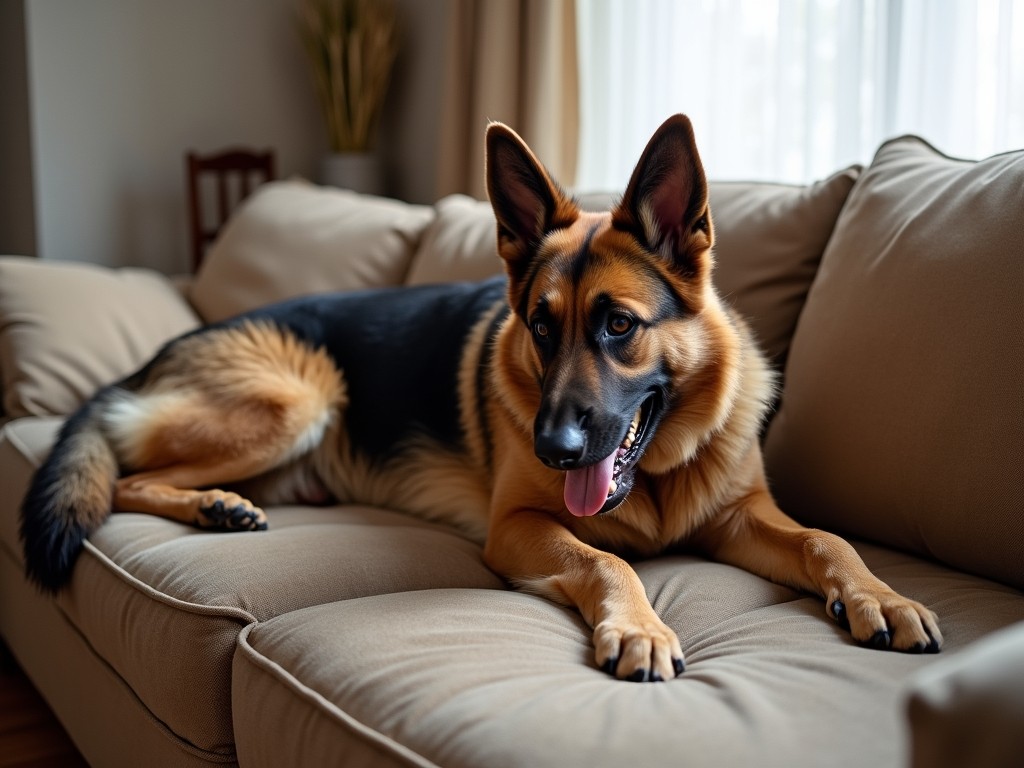
Are German Shepherds Good with Kids?
German Shepherds can be excellent family dogs and wonderful with children when properly socialized and trained throughout their lives.
Natural Protectiveness: German Shepherds often develop strong protective instincts toward children in their family, becoming devoted guardians and companions.
Gentle Nature: Despite their size and strength, well-socialized German Shepherds can be remarkably gentle with children, often seeming to understand their vulnerability.
Loyalty to Family: Their strong family bonds mean they typically include children as important family members worthy of protection and companionship.
Intelligence Benefits: Their high intelligence allows them to learn appropriate behavior around children and understand different rules for different situations.
Energy Match: Active children who enjoy outdoor play often make excellent companions for energetic German Shepherds.
Teaching Opportunities: These intelligent, trainable dogs provide excellent opportunities to teach children about responsibility, empathy, and animal care.
Supervision Importance: Due to their size, interactions with very young children should always be supervised to prevent accidental injuries.
Training Requirements: Success with children requires consistent training to ensure appropriate behavior and boundaries are maintained.

Senior Care and End-of-Life Considerations
Understanding how to care for aging German Shepherds helps maximize their comfort and quality of life in their later years.
Regular Health Monitoring: Increase veterinary checkups to twice yearly for dogs over 7 years to catch age-related issues early.
Comfort Modifications: Provide orthopedic bedding, ramps, and other modifications to help aging dogs remain comfortable and mobile.
Pain Management: Work with veterinarians to manage arthritis and other age-related pain to maintain quality of life.
Dietary Adjustments: Senior dogs may benefit from easier-to-digest foods, weight management diets, or therapeutic formulations.
Mental Health: Continue providing mental stimulation appropriate for senior dogs to maintain cognitive function.
Quality of Life Assessment: Regularly evaluate your dog’s quality of life and be prepared to make difficult decisions when necessary.

The Importance of Responsible Breeding
Choosing a puppy from responsible breeders significantly impacts German Shepherd life expectancy and overall health.
Health Testing: Reputable breeders test breeding dogs for hip dysplasia, elbow dysplasia, degenerative myelopathy, and other genetic conditions.
Longevity Focus: Quality breeders prioritize breeding for health and longevity rather than focusing solely on appearance or profit.
Genetic Diversity: Responsible breeding practices help maintain genetic diversity and reduce the risk of inherited health problems.
Early Care: Good breeders provide proper early care, socialization, and health screening that sets puppies up for longer, healthier lives.
We here at German Shepherd Puppies NC take great pride in breeding the best German Shepherd puppies in all of North Carolina. As North Carolina’s premier German Shepherd experts, German Shepherd Puppies NC has been breeding award-winning AKC quality German Shepherd puppies since 1991. Whether you’re looking for black German Shepherd puppies, white puppies, blue puppies, sable puppies, or long-haired puppies, we have the expertise and commitment to excellence that ensures each puppy is raised with proper socialization, health screening, and the foundation for a long, healthy life.
Our decades of experience in breeding German Shepherds gives us unique insights into maximizing health and longevity in our breeding lines. We conduct comprehensive health testing on all breeding dogs and focus on producing puppies with the genetic foundation for extended life expectancy.
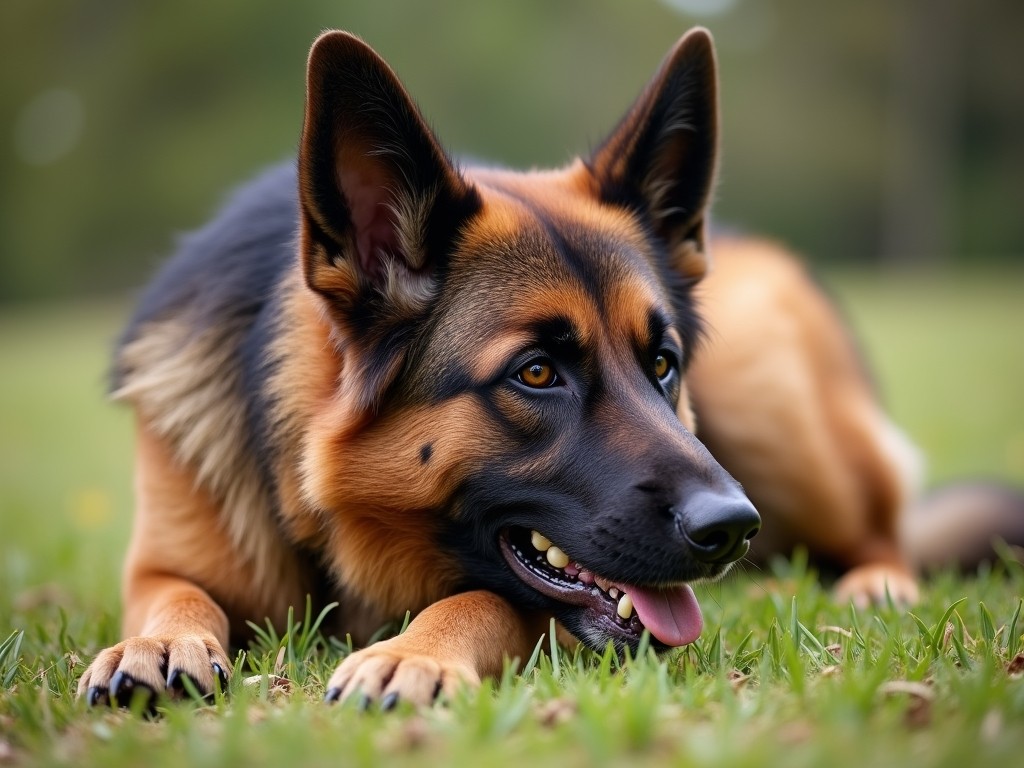
Making the Most of Your Time Together
Understanding German Shepherd life expectancy helps owners make the most of their time with these wonderful dogs.
Create Memories: Take advantage of your dog’s active years to create lasting memories through adventures, training achievements, and special experiences.
Document the Journey: Keep photos and records of your dog’s life to preserve memories of your time together.
Enjoy Each Stage: Appreciate the unique joys and characteristics of each life stage from playful puppy to wise senior.
Build Strong Bonds: Invest time in training, activities, and bonding experiences that strengthen your relationship.
Prepare for the Future: Understanding the typical lifespan helps owners prepare emotionally and financially for their dog’s care throughout life.

Conclusion
German Shepherd life expectancy of 9-13 years represents a meaningful but relatively short time to share with these extraordinary dogs. While we cannot control all factors that influence longevity, responsible ownership, proper care, quality breeding, and preventive health measures can help ensure German Shepherds live the longest, healthiest, and happiest lives possible.
Understanding the factors that influence lifespan empowers owners to make informed decisions about care, lifestyle, and health management throughout their dog’s life. From choosing a healthy puppy from responsible breeders to providing excellent care throughout all life stages, every decision can contribute to maximizing both the length and quality of your German Shepherd’s life.
For those considering adding a German Shepherd to their family, working with experienced, reputable breeders who prioritize health and longevity is essential. If you would like to request a German Shepherd puppy, please contact us as we here at German Shepherd Puppies NC would be glad to help you find a healthy puppy with the genetic foundation for a long, wonderful life. If you are looking for German Shepherd puppies for sale near me, then look no further than German Shepherd Puppies NC. Our commitment to excellence in breeding, combined with our understanding of factors that influence German Shepherd life expectancy, ensures that you’ll receive a puppy that’s been properly prepared for a lifetime of health and happiness as your family companion.
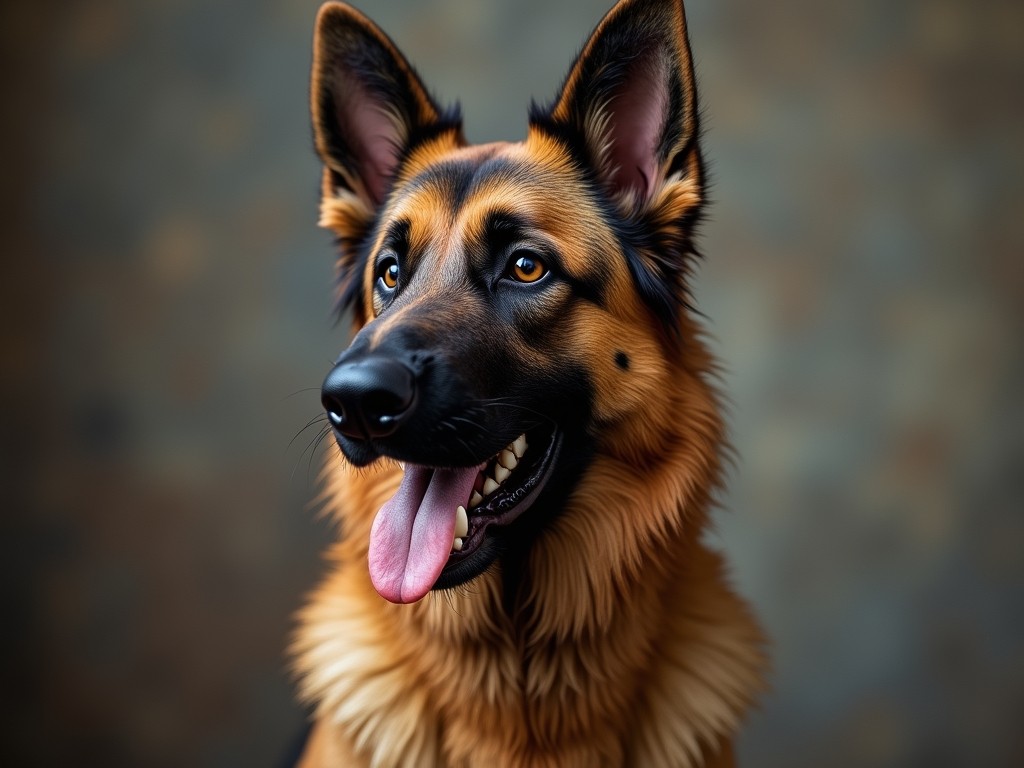
What Is The Bite Force of a German Shepherd?
The German Shepherd is renowned for its intelligence, loyalty, and versatility as both a family companion and working dog. One aspect that often sparks curiosity among dog enthusiasts and potential owners is the German Shepherd’s bite force. Understanding this characteristic can provide valuable insights into the breed’s capabilities and the importance of proper training and socialization.
German Shepherd Bite Force PSI: The Numbers
The German Shepherd’s bite force measures approximately 238 pounds per square inch (PSI). This impressive figure places the German Shepherd among the stronger-biting dog breeds, though it’s important to put this number into perspective. To understand what this means, consider that the average human bite force is around 162 PSI, making the German Shepherd’s bite significantly more powerful than our own.
This 238 PSI bite force is the result of the German Shepherd’s robust jaw structure, well-developed jaw muscles, and the breed’s overall physical build. The combination of their skull shape, muscle density, and jaw mechanics contributes to this remarkable biting capability.
Comparing German Shepherd Bite Force to Other Breeds
While 238 PSI is substantial, it’s worth noting how the German Shepherd compares to other popular breeds:
- Rottweiler: 328 PSI
- American Bulldog: 305 PSI
- German Shepherd: 238 PSI
- Doberman Pinscher: 245 PSI
- Pit Bull: 235 PSI
- Labrador Retriever: 230 PSI
The German Shepherd’s bite force sits comfortably in the upper range among dog breeds, reflecting their heritage as working dogs bred for protection, herding, and various service roles.

Factors Influencing Bite Force
Several factors contribute to an individual German Shepherd’s bite force:
- Size and Build: Larger German Shepherds typically have stronger bite forces than smaller ones. Adult males, being generally larger than females, often exhibit slightly higher PSI measurements.
- Age and Health: Young puppies and senior dogs may have reduced bite force compared to healthy adults in their prime. Dental health also plays a crucial role in bite effectiveness.
- Training and Conditioning: Dogs trained for protection work or those that regularly use their jaws for work-related activities may develop stronger jaw muscles over time.
- Genetics: Like many physical traits, bite force can vary based on genetic lineage and breeding quality.
The Purpose Behind the Power
The German Shepherd’s strong bite force isn’t merely a random trait – it serves several important purposes rooted in the breed’s history and function:
- Working Heritage: Originally bred for herding sheep, German Shepherds needed sufficient bite force to control livestock without causing harm. The bite had to be strong enough to be respected by sheep and cattle while controlled enough to avoid injury.
- Protection Capabilities: As the breed evolved into police and military work, their bite force became an asset in protection and apprehension work. The combination of strength and trainability made them ideal for these roles.
- Prey Drive and Hunting: German Shepherds retain some prey drive, and their bite force enables them to be effective in scenarios requiring capture and hold techniques.
Understanding Bite Inhibition and Training
Despite their impressive bite force, German Shepherds are known for their excellent bite inhibition when properly trained. Bite inhibition refers to a dog’s ability to control the pressure of their bite, and it’s a crucial skill that begins developing in puppyhood.
Proper socialization and training from an early age help German Shepherds learn to moderate their bite force in different situations. This is why working with reputable breeders who begin early socialization is so important for this breed.

Safety Considerations and Responsible Ownership
Understanding your German Shepherd’s bite force capabilities comes with responsibilities:
- Early Socialization: Expose your German Shepherd puppy to various people, animals, and situations to ensure they develop appropriate social skills and bite inhibition.
- Consistent Training: Establish clear boundaries and commands, particularly around biting and mouthing behaviors. Even playful biting should be redirected to appropriate toys.
- Professional Guidance: Consider working with experienced dog trainers, especially if you plan to utilize your German Shepherd’s natural protection instincts.
- Secure Environment: Ensure your property is properly secured to prevent your German Shepherd from encountering situations where their protective instincts might be triggered inappropriately.
The Importance of Quality Breeding
The German Shepherd’s bite force, temperament, and overall behavior are significantly influenced by their genetic background and early development. This is where the expertise of established breeders becomes invaluable.
We here at German Shepherd Puppies NC understand the importance of breeding German Shepherds with not only impressive physical capabilities but also stable temperaments and proper socialization. As North Carolina’s premier German Shepherd experts, German Shepherd Puppies NC has been breeding the best German Shepherd puppies for sale in all of North Carolina since 1991.
Whether you’re looking for black German Shepherd puppies, white puppies, blue puppies, sable puppies, or long-haired puppies, we have the award-winning AKC quality German Shepherd puppy that is just right for you and your family. Our decades of experience ensure that each puppy is raised with proper socialization, health screening, and the foundation for developing appropriate bite inhibition and temperament.
Beyond the Bite: The Complete German Shepherd
While bite force is an interesting characteristic, it represents just one aspect of what makes German Shepherds exceptional dogs. Their intelligence, trainability, loyalty, and versatility are equally important traits that have made them one of the world’s most popular breeds.
A well-bred German Shepherd with proper training and socialization will use their impressive bite force responsibly and only when appropriate. They can be gentle family companions who know when to be protective and when to be playful.
Finding Your German Shepherd Puppy
If you’re considering adding a German Shepherd to your family and want to ensure you’re getting a puppy with the best possible genetic foundation and early development, it’s crucial to work with experienced, reputable breeders.
If you are looking for German Shepherd puppies for sale near me, then look no further than German Shepherd Puppies NC. Our commitment to excellence in breeding, combined with our understanding of the German Shepherd’s unique characteristics including their bite force capabilities, ensures that you’ll receive a puppy that’s been properly prepared for life as your family companion.
For those interested in learning more about German Shepherd puppies and finding the perfect addition to their family, we encourage you to reach out to us here at German Shepherd Puppies NC. We would be glad to help you understand more about this remarkable breed and assist you in finding the ideal German Shepherd puppy for your specific needs and lifestyle.

Conclusion
The German Shepherd’s bite force of approximately 238 PSI is a testament to the breed’s strength and working heritage. However, this power comes with the responsibility of proper breeding, training, and socialization. When these elements are combined with the German Shepherd’s natural intelligence and loyalty, the result is a dog that can be both a gentle family companion and a capable protector when needed.
Understanding your German Shepherd’s capabilities, including their bite force, helps you become a more informed and responsible owner. With proper care, training, and socialization from reputable breeders, your German Shepherd will be a wonderful addition to your family for years to come.
Miniature German Shepherd Puppies: What to Know Before Bringing One Home
Introduction
For over three decades, German Shepherd Puppies NC has been dedicated to breeding exceptional German Shepherds in North Carolina. As enthusiasts with extensive knowledge of this remarkable breed, we understand that many prospective dog owners are increasingly interested in miniature German Shepherd puppies. These compact companions offer many of the beloved traits of standard German Shepherds in a smaller package. This comprehensive guide will explore everything you need to know about miniature German Shepherds, from their origins and characteristics to care requirements and considerations before bringing one home.

What Is a Miniature German Shepherd?
A miniature German Shepherd is not a purebred or officially recognized breed by the American Kennel Club (AKC). Rather, these dogs are typically created through one of several methods:
- Crossbreeding: Most common mini German Shepherds are crossbreeds, often mixing German Shepherds with smaller breeds like Pomeranians, Corgis (creating what some call a “Corgi mini German Shepherd”), or Collies.
- Introducing the dwarfism gene: Some breeders selectively breed German Shepherds with the naturally occurring dwarfism gene, resulting in smaller dogs. However, this approach can lead to health complications.
- Breeding runts: Some breeders repeatedly breed smaller German Shepherds (runts) to produce smaller offspring. This practice requires careful health monitoring.
It’s important to understand that when searching for “mini German Shepherd for sale” or “miniature German Shepherd for sale,” you’re likely looking at a crossbreed rather than a purebred German Shepherd in miniature form.

Physical Characteristics
Miniature German Shepherds typically range from 15 to 20 inches in height and weigh between 30 to 50 pounds, roughly half the size of a standard German Shepherd. They often retain the distinctive coloration and facial features of German Shepherds, including:
- The familiar black and tan coloration (though other colors are possible)
- Erect, pointed ears
- An alert, intelligent expression
- A double coat that requires regular grooming
Their smaller stature makes them more manageable for apartment living or for families with limited space, while still providing many of the physical attributes that make German Shepherds so beloved.
Temperament and Personality
Mini German Shepherds typically inherit many of the admirable personality traits of their larger counterparts, including:
Intelligence and Trainability
Like standard German Shepherds, mini versions are highly intelligent and eager to please, making them relatively easy to train with consistent, positive reinforcement techniques. They excel at learning commands and can be trained for various tasks, from basic obedience to more complex activities.
Loyalty and Protectiveness
Miniature German Shepherds often form strong bonds with their families and display protective instincts. While less intimidating than full-sized German Shepherds, they still make excellent watchdogs and will alert you to strangers or unusual activities.
Energy Level
Though smaller in size, mini German Shepherds typically retain the energetic nature of the breed. They require regular exercise to maintain physical and mental health. Daily walks, play sessions, and mental stimulation through training or puzzle toys are essential for preventing boredom and destructive behaviors.
Compatibility with Children and Other Pets
When properly socialized from a young age, miniature German Shepherds typically do very well with children. Their protective nature makes them watchful guardians, while their playful disposition makes them wonderful companions. However, as with any dog, interactions between young children and puppies should always be supervised.
Regarding other pets, early socialization is key. Mini German Shepherds can get along well with other dogs and even cats when introduced properly and raised together.

Health Considerations and Veterinary Costs
Prospective owners should be aware of potential health concerns and associated veterinary costs when considering a miniature German Shepherd.
Common Health Issues
Depending on how they were bred, mini German Shepherds may be prone to certain health conditions:
- Joint problems: Hip and elbow dysplasia can occur, especially in dogs bred from standard German Shepherds.
- Spinal issues: Particularly in dogs with dwarfism, back problems may develop over time.
- Digestive sensitivities: Some mini German Shepherds inherit the sensitive digestive systems common in standard German Shepherds.
- Eye conditions: Progressive retinal atrophy and other eye issues may be present, particularly in crossbreeds.
Regular veterinary check-ups can help detect and address these issues early.
Expected Veterinary Costs
Owners should budget for the following veterinary expenses:
- Initial vaccinations and check-ups: $200-$500 in the first year
- Spaying/neutering: $200-$500
- Annual wellness exams: $100-$300 per year
- Preventative medications (heartworm, flea, and tick): $200-$500 annually
- Emergency fund: It’s advisable to set aside at least $1,000-$2,000 for unexpected health issues
Additionally, pet insurance can help manage costs, with monthly premiums typically ranging from $30 to $100 depending on coverage levels.

Nutrition and Feeding
Proper nutrition is essential for maintaining your miniature German Shepherd’s health and longevity.
Dietary Needs
Mini German Shepherds typically thrive on high-quality dog food formulated for active, medium-sized breeds. Depending on their specific crossbreed characteristics, they may have particular dietary requirements:
- Protein content: Look for foods with quality protein sources listed as primary ingredients
- Joint support: Foods containing glucosamine and chondroitin can support joint health
- Digestive health: Some may benefit from easy-to-digest formulas or added probiotics
- Weight management: Portion control is important to prevent obesity, which can exacerbate joint issues
Feeding Schedule and Costs
Most adult mini German Shepherds do well with two measured meals daily. Puppies require more frequent feeding, typically 3-4 times per day until 6 months of age.
Monthly food costs typically range from $40 to $80, depending on the quality of food selected. This is slightly less than feeding a standard German Shepherd but still represents a significant ongoing expense.

Exercise and Training Requirements
Despite their smaller size, miniature German Shepherds have inherited the working dog mentality of their larger counterparts and require regular physical and mental exercise.
Exercise Needs
Plan to provide your mini German Shepherd with:
- 30-60 minutes of daily exercise
- A mix of walking, running, and play
- Mental stimulation through training and puzzle toys
- Secure, fenced areas for off-leash play
Training Approach
Begin training early, using positive reinforcement techniques. Mini German Shepherds respond well to:
- Consistent, clear commands
- Reward-based training with treats, praise, and play
- Early socialization with various people, animals, and environments
- Regular training sessions that are short but frequent
Properly trained, these dogs make excellent companions for active individuals and families.

Conclusion: Is a Miniature German Shepherd Right for You?
A miniature German Shepherd can be a wonderful addition to the right home. They offer many of the beloved qualities of standard German Shepherds—intelligence, loyalty, and versatility—in a more manageable size. However, prospective owners should consider:
- They still require significant exercise, training, and mental stimulation
- Health issues may arise depending on breeding practices
- They represent a 10-15 year commitment with ongoing costs for food, veterinary care, and supplies
At German Shepherd Puppies NC, we’re committed to connecting families with the perfect puppy to match their lifestyle. Whether you’re considering a standard or miniature German Shepherd, our 30+ years of breeding experience ensures that you’ll receive a healthy, well-socialized puppy with the characteristic intelligence, courage, and loyalty that makes German Shepherds one of America’s most beloved breeds.
If you’re looking for a “mini German Shepherd Puppies for sale” or want to learn more about our available puppies, visit our website or contact us directly. Our team is happy to answer any questions and help you determine if a miniature German Shepherd is the right fit for your family.

The Corgi German Shepherd Mix: A Unique Designer Breed
At German Shepherd Puppies NC, we’ve been North Carolina’s premier German Shepherd breeders since 1991, specializing in pure-bred German Shepherd puppies of exceptional quality. While we focus on breeding the finest AKC-registered German Shepherds, we often receive questions about various German Shepherd mixes, including the increasingly popular Corgi German Shepherd mix. Let’s explore this fascinating hybrid breed while highlighting why a purebred German Shepherd from German Shepherd Puppies NC might be the better choice for your family.
What is a Corgi German Shepherd Mix?
The Corgi German Shepherd mix, sometimes called a Corman Shepherd or German Corgi, combines the herding instincts of both parent breeds. While these designer dogs can be charming, they don’t offer the predictability and proven excellence of our purebred German Shepherd puppies at German Shepherd Puppies NC, where we’ve been breeding award-winning AKC quality German Shepherd puppies for over three decades.

Physical Characteristics
Corgi German Shepherd mixes typically display a unique combination of their parent breeds’ features:
- Medium-sized body with shorter legs
- Ears that can be either upright like a German Shepherd or floppy
- A coat that may come in various colors and patterns
- Weight ranging from 20-70 pounds
- Height typically between 12-26 inches
For those seeking a more predictable and standard appearance, we recommend our purebred German Shepherd puppies at German Shepherd Puppies NC, where we offer various beautiful coat colors including black, white, blue, and sable.

Temperament and Personality
While Corgi German Shepherd mixes can inherit positive traits from both breeds, their temperament can be unpredictable. These mixed breeds often display:
- High intelligence
- Strong herding instincts
- Protective nature
- Energetic personality
- Variable social tendencies
At German Shepherd Puppies NC, our purebred German Shepherd puppies offer consistent, reliable temperaments backed by generations of careful breeding and selection for ideal family companion traits.
Exercise and Training Requirements
Like their parent breeds, Corgi German Shepherd mixes require substantial exercise and mental stimulation. However, their exercise capacity may be limited by their shorter legs compared to purebred German Shepherds. At German Shepherd Puppies NC, our German Shepherd puppies are bred for optimal physical capability and endurance, making them perfect for active families who enjoy outdoor activities.

Health Considerations
While mixed breeds can sometimes benefit from hybrid vigor, Corgi German Shepherd mixes may face health challenges from both parent breeds, including:
- Hip and elbow dysplasia
- Back problems due to their long body structure
- Joint issues
- Eye problems
At German Shepherd Puppies NC, we prioritize health in our breeding program, conducting comprehensive health testing on all our breeding pairs to ensure the healthiest possible puppies for our families.
Making the Right Choice for Your Family
While Corgi German Shepherd mixes can make wonderful pets, families seeking a dog with predictable traits, proven health clearances, and excellent breeding should consider a purebred German Shepherd from German Shepherd Puppies NC. Our puppies offer:
- AKC registration
- Health guarantees
- Consistent temperaments
- Proven bloodlines
- Expert breeder support

Conclusion
Whether you’re considering a Corgi German Shepherd mix or a purebred German Shepherd, it’s essential to choose a reputable source for your new family member. German Shepherd Puppies NC has been breeding the best German Shepherd puppies for sale in all of North Carolina since 1991. Whether you’re looking for black German Shepherd puppies, white puppies, blue puppies, sable puppies, or long-haired puppies, we have the award-winning AKC quality German Shepherd puppy that is just right for you and your family.
If you are looking for German Shepherd puppies for sale near me, then look no further than German Shepherd Puppies NC. Contact us today to learn more about our available puppies and how we can help you find your perfect canine companion.

The Complete Guide to German Shepherd Colors
As North Carolina’s premier German Shepherd breeders since 1991, German Shepherd Puppies NC has extensive experience with the stunning variety of coat colors this magnificent breed can display. Whether you’re looking for black German Shepherd puppies, white puppies, blue puppies, sable puppies, or long-haired puppies, we have the perfect AKC-quality German Shepherd puppy that is just right for you and your family.
Our Available German Shepherd Colors
1. Black and Tan German Shepherd
The classic black and tan German Shepherd represents the breed’s most recognized color pattern. At German Shepherd Puppies NC, our black and tan puppies showcase:
- Rich, deep black saddle pattern
- Warm tan markings on face, chest, and legs
- Perfect color distribution meeting AKC standards
- Excellent pigmentation and coat quality
These puppies typically develop their full coloring by age two, starting darker and gradually developing their distinctive pattern. They make excellent family companions and working dogs.

2. Pure Black German Shepherd
Our solid black German Shepherds are striking examples of this noble breed. Features include:
- Rich, glossy black coat from nose to tail
- Often striking gold or dark brown eyes
- Strong working drive and protective instincts
- AKC recognized standard color
While some consider them rare, we maintain careful breeding lines to ensure availability of these magnificent dogs.

3. Black and Cream German Shepherd
The black and cream variation offers a softer, elegant appearance. Our puppies feature:
- Lighter cream coloring replacing traditional tan
- Distinct black saddle and facial markings
- Gentle appearance perfect for family companions
- Same strong temperament as darker variations
These puppies are particularly popular with families seeking a less intimidating appearance while maintaining the breed’s excellent qualities.

4. Black and Silver German Shepherd
Our black and silver German Shepherds offer a striking, wolf-like appearance:
- Cool silver tones replacing traditional tan
- Distinctive black markings
- Often more visible in low light conditions
- Popular choice for both working and show lines
This color variation maintains all the intelligence and loyalty of traditional colors while offering a unique aesthetic appeal.

5. Black and Red German Shepherd
Our black and red German Shepherds are highly sought after for their rich coloring:
- Deep, mahogany red markings
- Clear black saddle pattern
- Show-quality color distribution
- Excellent family and show prospects
These puppies are particularly popular in show lines and make stunning family companions.

6. Gray German Shepherd
Our gray German Shepherds, often called wolf gray, offer a unique appearance:
- Wolf-like gray coloring
- Often lighter undercoat
- AKC recognized coloring
- Strong working abilities
These puppies combine striking looks with excellent working capabilities.

7. White German Shepherd
Our white German Shepherd puppies are stunning examples of this special variety:
- Pure white coat from a masking gene
- Warm brown or hazel eyes
- Dark nose and paw pads
- Excellent family temperaments
While not recognized for AKC conformation shows, these dogs make exceptional family companions.

8. Silver German Shepherd
Our silver German Shepherds showcase a unique and eye-catching coat:
- Distinctive silver coloring
- Often lighter undercoat
- Striking appearance
- Excellent working capabilities
These puppies are particularly popular for their unique appearance while maintaining strong working abilities.

9. Blue German Shepherd
Our rare blue German Shepherds are among our most unique offerings:
- Distinctive blue-tinted coat
- Result of a specific dilution gene
- Often lighter eyes
- Limited availability
While not recognized for conformation showing, these dogs are highly sought after for their unique appearance.

10. Liver German Shepherd
Our liver German Shepherds display a unique brown coloration:
- Rich brown coat instead of black
- Brown nose and paw pads
- Often lighter eyes
- Distinctive appearance
These special puppies maintain all the excellent qualities of the breed in a unique color package.

11. Panda German Shepherd
Our rare panda German Shepherds showcase a unique piebald pattern:
- Distinctive white markings on black and tan base
- Unique facial patterns
- Result of a rare genetic pattern
- Limited availability
While controversial in some circles, these dogs are purebred and make excellent companions.

12. Sable German Shepherd
Our sable German Shepherds showcase the breed’s original color:
- Each hair features multiple colors
- Various shades available
- Strong working abilities
- Direct connection to breed origins
These puppies carry the dominant color gene of the breed and excel in various roles.

13. Bi-Color German Shepherd
Our bi-color German Shepherds feature a distinct two-tone pattern:
- Predominantly black with minimal tan markings
- Clear color separation
- Strong working drive
- AKC recognized pattern
These puppies are excellent working prospects and family companions.

14. Albino German Shepherd
While extremely rare, true albino German Shepherds are distinctive:
- Pure white coat due to lack of pigmentation
- Pink or very light eyes
- Pink nose and paw pads
- Special care requirements
These dogs require specific care and consideration for their unique needs.

15. Isabella German Shepherd
Our Isabella German Shepherds represent one of the rarest color variations:
- Unique lilac-gray coloring
- Light brown or white undercoat
- Often blue or hazel eyes
- Extremely limited availability
These rare puppies combine unique coloring with excellent temperament.

Why Choose German Shepherd Puppies NC?
At German Shepherd Puppies NC, we’ve been breeding the best German Shepherd puppies for sale in all of North Carolina since 1991. Our commitment to excellence includes:
- Comprehensive health testing
- Expert color genetics knowledge
- Lifetime breeder support
- AKC registration
- Health guarantees
Whether you’re looking for black German Shepherd puppies, white puppies, blue puppies, sable puppies or long-haired puppies, we have the award-winning AKC quality German Shepherd puppy that is just right for you and your family. If you are looking for German Shepherd puppies for sale near me, then look no further than German Shepherd Puppies NC.
German Shepherd Poodle Mix (Shepadoodle): The Perfect Family Companion
German Shepherd Puppies NC has been breeding the best German Shepherd puppies for sale in all of North Carolina since 1991. While we specialize in purebred German Shepherds, we’re happy to provide expert information about various German Shepherd mixes to help you make an informed decision about your future companion.
What is a German Shepherd Poodle Mix?
The German Shepherd Poodle mix, often called a Shepadoodle or German Sheperdpoo, is a designer dog breed that combines the intelligence and loyalty of the German Shepherd with the low-shedding coat and high intelligence of the Poodle. This unique combination creates a versatile, family-friendly companion that often inherits the best traits of both parent breeds.

Physical Characteristics
Size and appearance can vary significantly, depending on which parent breed the puppy takes after more strongly:
- Height: 22-28 inches at the shoulder
- Weight: 50-90 pounds
- Coat: Usually wavy to curly, sometimes straight
- Colors: Black, brown, cream, or combinations
- Build: Athletic and well-proportioned
- Features: Often combines the Shepherd’s strong bone structure with the Poodle’s refined features
Temperament and Personality
The Shepadoodle typically displays these characteristics:
- High intelligence from both parent breeds
- Strong loyalty to family
- Good with children when properly socialized
- Protective instincts from the German Shepherd side
- Playful nature from the Poodle genetics
- Social and friendly when well-socialized
- Eager to please and highly trainable
Exercise Requirements
German Shepherd Poodle mixes are energetic dogs that need:
- 60-90 minutes of daily exercise
- Mental stimulation through training and puzzles
- Regular play sessions
- Access to a secure yard
- Various activities to prevent boredom

Grooming Needs
Grooming requirements can vary but typically include:
- Regular brushing (2-3 times per week)
- Professional grooming every 6-8 weeks
- Regular nail trimming
- Ear cleaning to prevent infections
- Dental hygiene maintenance
Health Considerations
While generally healthy, potential health issues may include:
- Hip dysplasia
- Bloat
- Eye problems
- Skin allergies
- Von Willebrand’s disease

Training Requirements
These intelligent dogs excel with:
- Early socialization
- Positive reinforcement methods
- Consistent training approach
- Mental stimulation exercises
- Regular obedience work
Living Environment
Shepadoodles adapt well to various living situations, provided they receive adequate exercise and attention. They do best in:
- Homes with yards
- Active households
- Families with older children
- Environments with regular human interaction

Diet and Nutrition
A proper diet should include:
- High-quality protein sources
- Appropriate portions based on size and activity level
- Regular feeding schedule
- Fresh water always available
- Age-appropriate food formulations
Finding Your Perfect Companion
While German Shepherd Puppies NC specializes in purebred German Shepherds, we understand that some families may be interested in designer breeds like the German Shepherd Poodle mix. Whether you’re looking for a purebred German Shepherd or exploring mixed breeds, we’re here to help guide you toward making the best decision for your family.
German Shepherd Puppies NC has been breeding the best German Shepherd puppies for sale in all of North Carolina since 1991. Whether you’re looking for black German Shepherd puppies, white puppies, blue puppies, sable puppies or long haired puppies, we have the award-winning AKC quality German Shepherd puppy that is just right for you and your family.

Conclusion
The German Shepherd Poodle mix combines the best qualities of both breeds to create an intelligent, loyal, and adaptable family companion. While they require dedicated exercise, training, and grooming, their loving nature and versatile capabilities make them an excellent choice for active families willing to invest time in their care and development.
German Shepherd Lifespan: A Complete Guide to Your Dog’s Life Journey
German Shepherd Lifespan: A Complete Guide to Your Dog’s Life Journey
German Shepherd Puppies NC has been breeding the best German Shepherd puppies for sale in all of North Carolina since 1991. Whether you’re looking for black German Shepherd puppies, white puppies, blue puppies, sable puppies, or long-haired puppies, we have the award-winning AKC quality German Shepherd puppy that is just right for you and your family.
Introduction
German Shepherds have earned their reputation as one of the world’s most versatile and beloved dog breeds. Their combination of intelligence, loyalty, and adaptability makes them exceptional companions for families, working professionals, and service roles. Understanding their lifespan and developmental stages is crucial for providing the best possible care throughout their lives.

Average Lifespan Overview
While the typical German Shepherd lives between 9 to 13 years, this range can vary significantly based on numerous factors. With advances in veterinary medicine and nutrition, many German Shepherds are living longer, healthier lives than ever before. The key to maximizing your German Shepherd’s lifespan lies in understanding their specific needs at each life stage and providing appropriate care.
Detailed Life Stages of a German Shepherd
Newborn Stage (0-2 weeks)
During these first crucial weeks:
- Puppies are completely dependent on their mother
- Eyes and ears remain closed until around 2 weeks of age
- Primary activities include nursing and sleeping
- Temperature regulation depends on mother and littermates
- Early neurological development begins
Transitional Stage (2-4 weeks)
This brief but critical period involves:
- Opening of eyes and ears
- First attempts at walking
- Beginning of teeth emergence
- Initial social interactions with littermates
- Start of environmental awareness
Socialization Period (4-12 weeks)
This vital stage shapes your puppy’s future personality and behavior:
- Critical period for human bonding
- Development of bite inhibition through play
- Learning of basic social cues
- Introduction to various environments and experiences
- Beginning of basic training and house training
At German Shepherd Puppies NC, we carefully oversee these crucial early developmental stages, ensuring each puppy receives optimal socialization and care. Our expertise as North Carolina’s premier German Shepherd breeder since 1991 allows us to provide puppies with the best possible foundation for a long, healthy life.

Juvenile Stage (3-6 months)
During this active growth period:
- Rapid physical development continues
- Permanent teeth replace baby teeth
- Increased energy and activity levels
- Development of coordination and strength
- Critical period for training and establishing routines
Adolescent Stage (6-24 months)
This challenging but rewarding period includes:
- Sexual maturity development
- Testing of boundaries and authority
- Refinement of social skills
- Continued physical growth and development
- Enhancement of training and obedience
Adult Stage (2-5 years)
The prime of life features:
- Peak physical condition and energy levels
- Full emotional and mental maturity
- Established personality traits
- Optimal working ability and performance
- Strong protective instincts and family bonds
Mature Adult Stage (5-8 years)
This stage brings:
- Gradual energy level changes
- Refined behavioral patterns
- Strong family bonds
- Possible early signs of aging
- Need for adjusted exercise routines
Senior Stage (8+ years)
Special considerations for seniors include:
- Modified exercise requirements
- Increased veterinary attention
- Dietary adjustments
- Potential health challenges
- Focus on comfort and quality of life
Record-Breaking Longevity
The longest-living documented German Shepherd reached an impressive 18 years of age, far exceeding the breed’s typical lifespan. This remarkable achievement demonstrates the potential for extended lifespans when excellent genetics, proper care, and optimal environmental conditions align. While such longevity is exceptional, it shows what’s possible with dedicated care and quality breeding practices.

Key Factors Influencing Lifespan
1. Genetic Foundation
Quality breeding practices significantly impact longevity. German Shepherd Puppies NC’s commitment to excellence in breeding ensures puppies have the genetic potential for long, healthy lives. Our selective breeding program focuses on:
- Health screening of parent dogs
- Genetic diversity
- Temperament testing
- Structural soundness
- Overall breed improvement
2. Nutrition and Diet
Proper nutrition throughout life stages is crucial:
- Puppy-specific formulas for growth
- Adult maintenance diets
- Senior-specific nutritional needs
- Supplement considerations
- Weight management
3. Exercise and Mental Stimulation
Regular activity is essential for longevity:
- Age-appropriate exercise routines
- Mental enrichment activities
- Social interaction
- Training and working activities
- Play and recreation
4. Healthcare and Prevention
Proactive health management includes:
- Regular veterinary check-ups
- Vaccination schedules
- Parasite prevention
- Dental care
- Early intervention for health issues
Maximizing Your German Shepherd’s Lifespan
To help your German Shepherd achieve optimal longevity:
- Choose a reputable breeder with health-tested parents
- Maintain consistent veterinary care
- Provide appropriate exercise and mental stimulation
- Feed high-quality, life-stage appropriate nutrition
- Monitor weight and body condition
- Address health concerns promptly
- Create a loving, stable environment
Start Your Journey with a Quality Puppy
If you’re looking for German Shepherd puppies for sale near you, look no further than German Shepherd Puppies NC. Our dedication to breeding excellence since 1991 ensures that each puppy has the potential for a long, healthy life. Whether you’re interested in black German Shepherd puppies, white puppies, blue puppies, sable puppies, or long-haired puppies, we have the perfect AKC quality German Shepherd puppy for your family.
Contact German Shepherd Puppies NC today to learn more about our available puppies and how we can help you find your perfect companion.
Black Lab German Shepherd Mix: The Complete Guide
As the leading experts in German Shepherd breeding in North Carolina since 1991, German Shepherd Puppies NC is proud to present this detailed guide to the Black Lab German Shepherd mix, also known as the Sheprador or German Sheprador. Our decades of experience breeding award-winning AKC German Shepherds gives us unique insight into these remarkable hybrid dogs.

Appearance
The Black Lab German Shepherd mix combines the athletic build of both parent breeds, creating a handsome and well-proportioned dog. These dogs typically display:
- Height: 20-26 inches at the shoulder
- Weight: 60-95 pounds
- Athletic, muscular build
- Dense double coat
- Predominantly black coloring, sometimes with tan markings
- Ears that can be erect, floppy, or semi-erect
- Strong, broad head
- Deep chest
- Tail that may curl slightly or remain straight
Personality and Temperament
These hybrid dogs inherit the best qualities from both parent breeds, resulting in:
- High intelligence
- Friendly and outgoing nature
- Strong loyalty to family
- Excellent work ethic
- Good balance of playfulness and protection
- Social tendencies
- Eager to please disposition

Compatibility with Children
Black Lab German Shepherd mixes often make excellent family dogs. They combine the Labrador’s gentle nature with the German Shepherd’s protective instincts, creating a patient and watchful companion for children. Early socialization helps ensure they develop appropriate behaviors around kids of all ages. Their playful nature and high energy level make them perfect playmates for active children.
Training Requirements
These intelligent hybrids respond well to training and require:
- Early socialization
- Consistent positive reinforcement
- Regular obedience training
- Mental stimulation activities
- Clear command structure
- Patience and persistence
- Interactive training sessions

Exercise Needs
Coming from two active breeds, these dogs require substantial exercise:
- 1-2 hours of daily exercise
- Regular walks and runs
- Swimming opportunities
- Fetch and retrieval games
- Dog sports participation
- Interactive play sessions
- Access to secure outdoor space
Grooming and Care
Grooming needs can vary but typically include:
- Regular brushing (2-3 times weekly)
- More frequent brushing during shedding seasons
- Regular baths (every 6-8 weeks)
- Nail trimming as needed
- Dental care routine
- Ear cleaning
- Regular health check-ups

Health Considerations
While generally healthy, potential health issues may include:
- Hip and elbow dysplasia
- Eye problems
- Bloat
- Allergies
- Joint issues
- Heart conditions
- Ear infections
Feeding Guidelines
A proper diet is essential for maintaining their health:
- High-quality large breed dog food
- Measured portions based on age and activity level
- Regular feeding schedule
- Fresh water always available
- Age-appropriate formulas
- Monitoring of weight and adjustment of portions as needed

Pros of Black Lab German Shepherd Mixes
- Excellent family dogs
- Highly trainable
- Good balance of protection and friendliness
- Great with children
- Athletic and versatile
- Loyal and devoted
- Good work ethic
- Social nature
Cons to Consider
- High exercise requirements
- Significant shedding
- Need for consistent training
- Size may be too large for some homes
- Potential separation anxiety
- Regular grooming needed

Choosing Your Black Lab German Shepherd Mix Puppy
When selecting a Black Lab German Shepherd mix puppy, it’s crucial to work with reputable breeders who prioritize health and temperament. German Shepherd Puppies NC has been breeding the best German Shepherd puppies for sale in all of North Carolina since 1991. Whether you’re looking for traditional German Shepherds or specialized hybrids, we have the expertise to ensure you receive a healthy, well-socialized puppy.
Our breeding program ensures that each puppy receives:
- Complete health screenings
- Early socialization
- Initial vaccinations
- Temperament testing
- Quality veterinary care
- Proper nutrition
- Environmental enrichment
Finding Your Perfect Companion
If you are looking for German Shepherd puppies or Black Lab German Shepherd mix puppies near me, then look no further than German Shepherd Puppies NC. We understand that choosing the right puppy is a significant decision, and we’re here to guide you through the process. Our expertise ensures that you’ll receive a puppy with the ideal combination of intelligence, temperament, and adaptability.
To request a Black Lab German Shepherd mix puppy, please contact German Shepherd Puppies NC. Our dedication to breeding excellence and commitment to producing the finest puppies ensures that your new family member will be everything you hope for and more.

Conclusion
The Black Lab German Shepherd mix combines the best qualities of two beloved breeds, creating an intelligent, friendly, and versatile companion. When properly trained and socialized, these dogs make exceptional family pets and active companions. German Shepherd Puppies NC takes great pride in breeding the best German Shepherd puppies in the world, and we extend this expertise to our hybrid breeding programs.
Remember that owning a Black Lab German Shepherd mix requires dedication to training, exercise, and proper care. With the right preparation and guidance from experienced breeders like German Shepherd Puppies NC, you can welcome one of these wonderful dogs into your family with confidence.
Rottweiler German Shepherd Mix: A Comprehensive Guide
As the leading experts in German Shepherd breeding in North Carolina since 1991, German Shepherd Puppies NC is proud to present this detailed guide to the Rottweiler German Shepherd mix, also known as the Shepweiler or German Rottie. Our decades of experience breeding award-winning AKC German Shepherds gives us unique insight into these remarkable hybrid dogs.

Appearance
The Rottweiler German Shepherd mix combines the striking features of both parent breeds, creating a large, powerful, and imposing dog. These dogs typically display:
- Height: 22-27 inches at the shoulder
- Weight: 75-115 pounds
- Strong, muscular build
- Dense double coat
- Colors ranging from black and tan to solid black
- Pointed or semi-pointed ears
- Deep chest and broad head
- Strong, straight back
Personality and Temperament
These hybrid dogs inherit the best qualities from both parent breeds, resulting in:
- Exceptional intelligence
- Strong protective instincts
- Unwavering loyalty
- Confident demeanor
- Alert and watchful nature
- Deep bonds with family members
- Natural guarding tendencies
The combination of two working breeds creates a dog that thrives on having a purpose and being an active family member.

Compatibility with Children
When properly trained and socialized, Rottweiler German Shepherd mixes make excellent family dogs. Their protective nature, combined with their patience and intelligence, makes them outstanding guardians for children. However, due to their size and strength, supervision is essential with young children. Early socialization is crucial to ensure they develop appropriate behaviors around kids.
Training Requirements
These intelligent hybrids require consistent and structured training:
- Early socialization is absolutely essential
- Positive reinforcement methods work best
- Regular obedience training
- Clear boundaries and rules
- Mental stimulation exercises
- Leadership-based training approach
- Task-oriented activities
Exercise Needs
Being a mix of two highly active breeds, these dogs require substantial exercise:
- 2+ hours of daily exercise
- Regular walks and jogs
- Interactive play sessions
- Mental stimulation activities
- Access to secure outdoor space
- Varied exercise routines
- Swimming (if inclined)
- Agility or tracking activities
Grooming and Care
The grooming needs of a Rottweiler German Shepherd mix can vary depending on which parent they take after more:
- Regular brushing (2-3 times weekly)
- Increased brushing during shedding seasons
- Occasional baths
- Regular nail trimming
- Dental hygiene maintenance
- Ear cleaning as needed
- Routine health checks
Health Considerations
While hybrid vigor may help reduce some inherited health issues, owners should be aware of potential conditions:
- Hip and elbow dysplasia
- Bloat (Gastric Dilatation-Volvulus)
- Heart conditions
- Joint problems
- Eye issues
- Allergies
- Von Willebrand’s disease
Feeding Guidelines
These large, active dogs require high-quality nutrition:
- Premium large-breed dog food
- Appropriate portion control
- Scheduled feeding times
- Fresh water always available
- Age-appropriate formulas
- Activity-level considerations
- Potential supplements as recommended by veterinarian

Pros of Rottweiler German Shepherd Mixes
- Exceptional guard dogs
- Highly intelligent
- Loyal and devoted
- Excellent working abilities
- Strong protective instincts
- Good with families when properly trained
- Versatile capabilities
- Athletic and strong
Cons to Consider
- High exercise requirements
- Strong prey drive
- Need for experienced handling
- Regular training necessary
- Potential health issues
- May be too powerful for novice owners
- Significant food costs
- Heavy shedding

Selecting Your Rottweiler German Shepherd Mix Puppy
When choosing a Rottweiler German Shepherd mix puppy, it’s crucial to work with reputable breeders who prioritize health and temperament. German Shepherd Puppies NC has been breeding the best German Shepherd puppies for sale in all of North Carolina since 1991. Whether you’re looking for traditional German Shepherds or specialized hybrids, we have the expertise to ensure you receive a healthy, well-socialized puppy.
Our breeding program ensures that each puppy receives:
- Comprehensive health screenings
- Early socialization
- Initial vaccinations
- Temperament evaluations
- Regular veterinary care
- Proper nutrition
- Environmental enrichment
Finding Your Perfect Companion
If you are looking for German Shepherd puppies or Rottweiler German Shepherd mix puppies near me, then look no further than German Shepherd Puppies NC. We understand that choosing the right puppy is a significant decision, and we’re here to guide you through the process. Our expertise ensures that you’ll receive a puppy with the ideal combination of strength, intelligence, and temperament.
To request a Rottweiler German Shepherd mix puppy, please contact German Shepherd Puppies NC. Our dedication to breeding excellence and commitment to producing the finest puppies ensures that your new family member will be everything you hope for and more.

Conclusion
The Rottweiler German Shepherd mix combines the best qualities of two remarkable breeds, creating a loyal, intelligent, and powerful companion. When properly trained and socialized, these dogs make exceptional family guardians and companions. German Shepherd Puppies NC takes great pride in breeding the best German Shepherd puppies in the world, and we extend this expertise to our hybrid breeding programs.
Remember that owning a Rottweiler German Shepherd mix is a significant commitment requiring dedication to training, exercise, and proper care. With the right preparation and guidance from experienced breeders like German Shepherd Puppies NC, you can welcome one of these magnificent dogs into your family with confidence.
Bi-Color German Shepherd Puppies: A Complete Guide
As the leading experts in German Shepherd breeding in North Carolina since 1991, German Shepherd Puppies NC is proud to present this comprehensive guide to bi-color German Shepherds. Our decades of experience breeding award-winning AKC German Shepherds gives us unique insight into this stunning variety of the breed.

Appearance
The bi-color German Shepherd showcases a striking coat pattern characterized by a predominantly black body with minimal tan markings, typically appearing only on their feet, under the tail, and in small areas on their face. Unlike the traditional black and tan pattern, bi-color German Shepherds have significantly less tan coloring, creating a dramatic and distinctive appearance. They maintain the breed’s noble bearing, with strong, muscular bodies, erect ears, and alert expressions.
Personality and Temperament
Bi-color German Shepherds share the same legendary temperament that has made the breed famous worldwide. They are:
- Intelligent and highly trainable
- Loyal and devoted to their families
- Naturally protective and alert
- Confident and steady-nerved
- Social when properly socialized
- Determined and focused
Compatibility with Children
These dogs make excellent family companions when properly trained and socialized. Their natural protective instincts, combined with their patient and gentle nature, make them ideal guardians for children. However, as with any dog, supervision is essential during interactions between dogs and young children.
Training Requirements
Bi-color German Shepherds possess the breed’s characteristic high intelligence and eagerness to please, making them highly trainable. They require:
- Early socialization
- Consistent, positive reinforcement-based training
- Mental stimulation through training exercises
- Regular obedience work
- Purpose-driven activities
Exercise Needs
These energetic dogs require substantial daily exercise to maintain their physical and mental well-being:
- 1-2 hours of daily exercise
- Regular walks or jogs
- Interactive play sessions
- Mental stimulation activities
- Access to a secure yard for free play
Grooming and Care
Bi-color German Shepherds have a double coat that requires regular maintenance:
- Brush 2-3 times per week
- More frequent brushing during shedding seasons
- Regular nail trimming
- Routine dental care
- Occasional baths as needed
Health Considerations
While generally healthy, bi-color German Shepherds may be prone to certain conditions:
- Hip and elbow dysplasia
- Degenerative myelopathy
- Bloat
- Allergies
- Eye problems
Regular veterinary check-ups and proper preventative care are essential for maintaining their health.
Feeding Guidelines
A proper diet is crucial for maintaining their health and energy levels:
- High-quality protein-rich dog food
- Age-appropriate portions
- Regular feeding schedule
- Fresh water always available
- Consideration of activity level when determining portions
Pros of Bi-Color German Shepherds
- Striking appearance
- Excellent protection dogs
- Highly intelligent
- Versatile working abilities
- Strong family bonds
- Great with children when properly trained
Cons to Consider
- Heavy shedding
- High exercise requirements
- Need for consistent training
- May be too protective without proper socialization
- Regular grooming needed
- Potential health issues
Choosing a Bi-Color German Shepherd Puppy
When selecting a bi-color German Shepherd puppy, it’s crucial to work with reputable breeders who prioritize health and temperament. German Shepherd Puppies NC has been breeding the best German Shepherd puppies for sale in all of North Carolina since 1991. Whether you’re looking for black German Shepherd puppies, white puppies, blue puppies, sable puppies, or long-haired puppies, we have the award-winning AKC quality German Shepherd puppy that is just right for you and your family.
Our bi-color German Shepherd puppies are carefully bred to meet the highest standards of health, temperament, and conformation. We take great pride in breeding the best German Shepherd puppies in the world, and our bi-color puppies are no exception. Each puppy receives:
- Early socialization
- Health screenings
- Temperament testing
- Initial vaccinations
- Regular veterinary care
Rich Bicolor German Shepherd Puppy
As North Carolina’s premier German Shepherd breeders since 1991, German Shepherd Puppies NC takes pride in our exceptional rich bi-color German Shepherd puppies. Rich bi-colors are a stunning and rare variation of the traditional bi-color pattern, displaying an intensely black coat with minimal, precisely defined tan markings typically found only on their paws, face, and under the tail.
What makes these puppies truly special is the depth and richness of their black coloring, which appears deeper and more lustrous than standard bi-colors, creating an almost velvet-like appearance. The tan markings on rich bi-colors are typically darker and more bronzed than those found on standard bi-colors, adding to their distinctive appearance.
While their coloring is unique, they share the same intelligent, loyal, and protective temperament that has made German Shepherds one of the world’s most beloved breeds. If you are looking for German Shepherd puppies for sale near me, then look no further than German Shepherd Puppies NC, where we specialize in breeding award-winning AKC quality German Shepherd puppies, including these magnificent rich bi-color specimens.

Finding Your Perfect Bi-Color Companion
If you are looking for German Shepherd puppies for sale near me, then look no further than German Shepherd Puppies NC. We understand that choosing the right puppy is a significant decision, and we’re here to help guide you through the process. Our expertise in breeding German Shepherds ensures that you’ll receive a puppy with the ideal combination of beauty, intelligence, and temperament.
Bi-Color German Shepherd Puppies For Sale
To request a bi-color German Shepherd puppy, please contact German Shepherd Puppies NC. Our dedication to breeding excellence and commitment to producing the finest German Shepherd puppies ensures that your new family member will be everything you hope for and more.
When you choose a bi-color German Shepherd from German Shepherd Puppies NC, you’re not just getting a pet – you’re gaining a loyal companion, protector, and friend who will bring joy and security to your family for years to come.



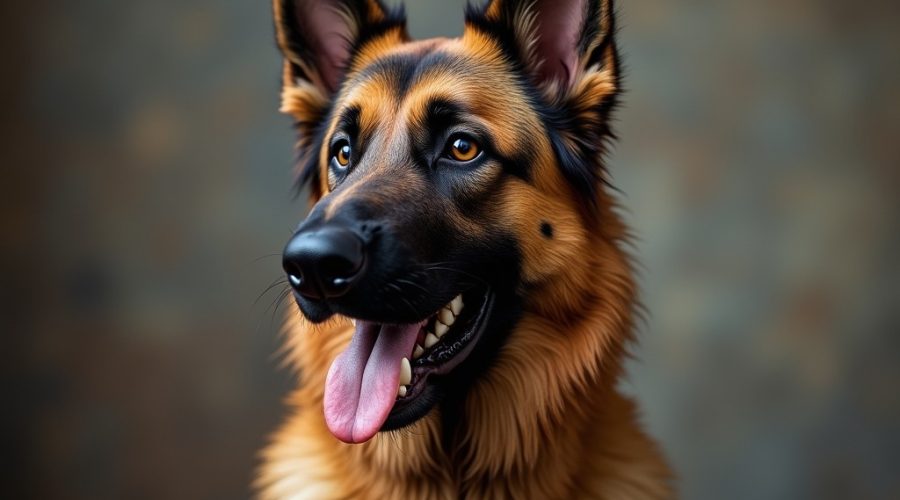



























Our Social Media Channels